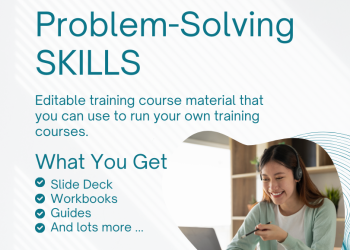Career tests, also known as career assessments or aptitude tests, are tools designed to help individuals understand how various personal attributes (i.e., interests, values, preferences, motivations, aptitudes, and skills) impact their potential success and satisfaction with different career options and work environments.
Background Overview of the Use of Career Tests at Work
Career tests have been used in the workplace for many years, serving as a valuable tool for career development, job placement, and employee management.
They are often used by career counselors, HR professionals, and organizations to help individuals understand their strengths, weaknesses, and interests, thereby guiding them toward careers that they are likely to find fulfilling and in which they are likely to succeed.
Features and Benefits of Career Tests
- Self-Understanding: Career tests can help individuals gain a deeper understanding of themselves, their interests, and their strengths. This can lead to increased self-confidence and a clearer career direction.
- Career Exploration: They provide an opportunity to explore a wide range of career options that the individual might not have considered.
- Job Matching: Career tests often suggest specific jobs or career paths that align with an individual’s personality, skills, and interests.
- Educational Guidance: They can provide guidance on the type of education or training that is required for certain career paths.
- Career Change: For those considering a career change, these tests can provide valuable insights into what other careers may be a good fit.
- Personalized Results: Most career tests provide personalized reports, offering insights that are unique to each individual.
- Career Development: They can be used as a tool for ongoing career development, helping individuals to continually align their career path with their evolving interests and skills.
- Increased Job Satisfaction: By guiding individuals towards careers that align with their interests and skills, career tests can lead to increased job satisfaction and productivity.
Five Free Career Tests
- Myers-Briggs Type Indicator (MBTI): This test helps individuals understand their personality type and how it relates to their career choices. It’s based on the theory that we all have specific preferences in the way we construe our experiences, and these preferences underlie our interests, needs, values, and motivation.
- The Holland Code (RIASEC) Test: This test is based on Dr. John Holland’s theory of careers and vocational choice, which suggests that people work best in work environments that match their preferences. People and work environments can be loosely classified into six different groups: Realistic, Investigative, Artistic, Social, Enterprising, and Conventional.
- The MAPP Career Assessment: The MAPP test is perhaps one of the most comprehensive career assessments out there, giving a detailed report of which careers are the best match, along with the careers you should avoid.
- Princeton Review Career Quiz: This is a quick and easy test that uses a method similar to the Myers-Briggs Type Indicator to identify your career personality.
- 123Test Career Test: This is a quick and easy test that helps you figure out what kind of careers you might like based on your skills, tasks, and ambitions.
Limitations of Career Tests
While career tests can be incredibly useful, they are not without their limitations. They should not be used in isolation but rather as part of a broader career planning process.
It’s important to remember that these tests are just one piece of the puzzle.
They can provide valuable insights, but they cannot account for all aspects of an individual’s life or all factors that might influence career satisfaction and success.
Furthermore, the results of these tests are often dependent on the individual’s self-perception and honesty while taking the test, which can sometimes be skewed.
Conclusion
Career tests can be a valuable tool for individuals at all stages of their career, from those just starting out to those considering a career change.
They offer a way to identify one’s strengths, interests, and personality traits, and to align these with suitable career paths.
To discover more about how our training course materials can help you to increase learner engagement, provide effective training courses, and extend your team’s knowledge, please take a moment to review our frequently asked questions, special offers, and training course material.
With 30+ years of training experience, I founded Oak Innovation (oakinnovation.com) in 1995. I help busy training professionals and business managers deliver better training courses in less time by giving them instant access to editable training course material. I received my Bachelor’s and Master’s degrees from University College Cork. I hold qualifications in Professional Development And Training from University College Galway. Clients include Apple, Time Warner, and Harvard University.



















